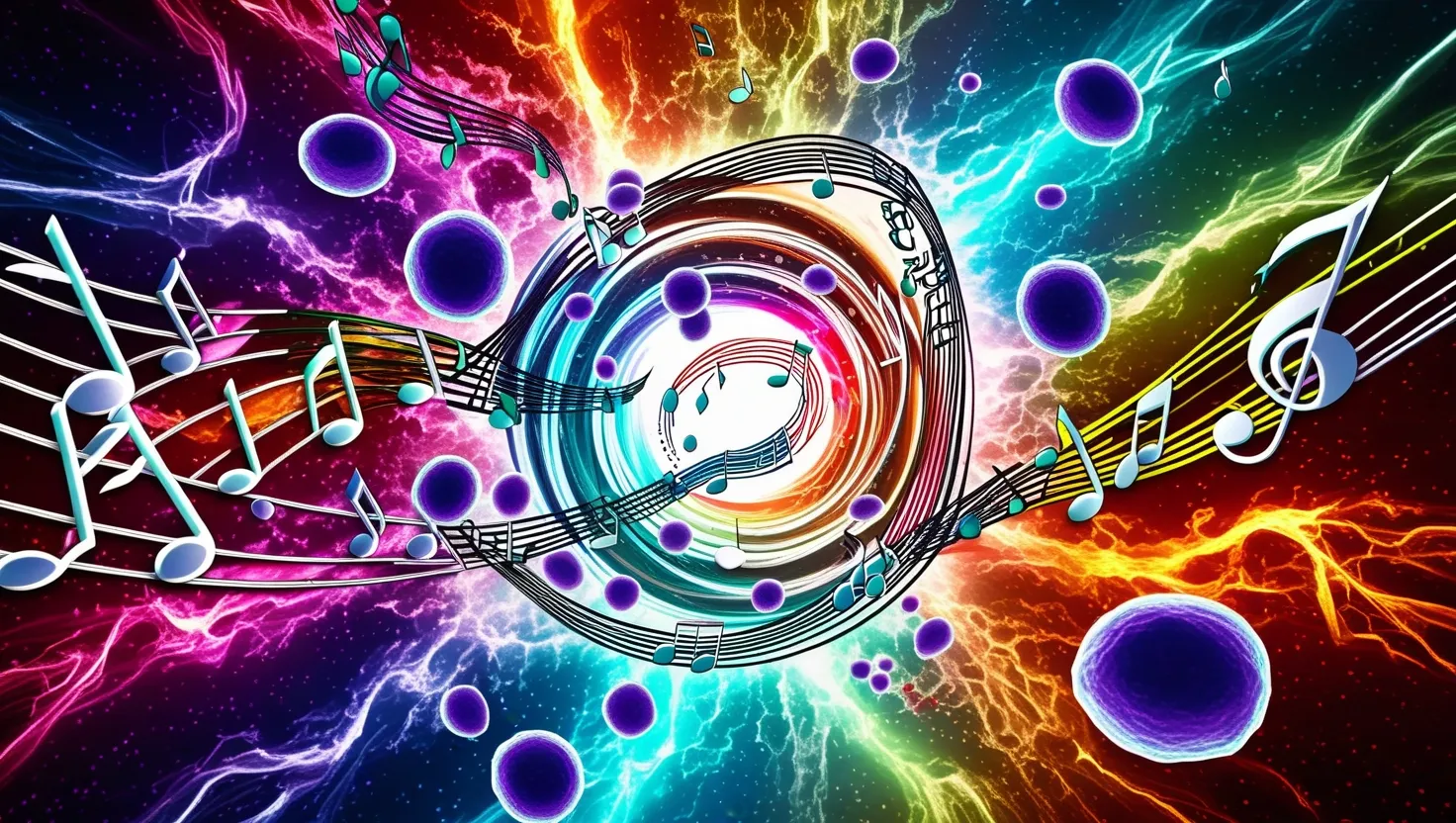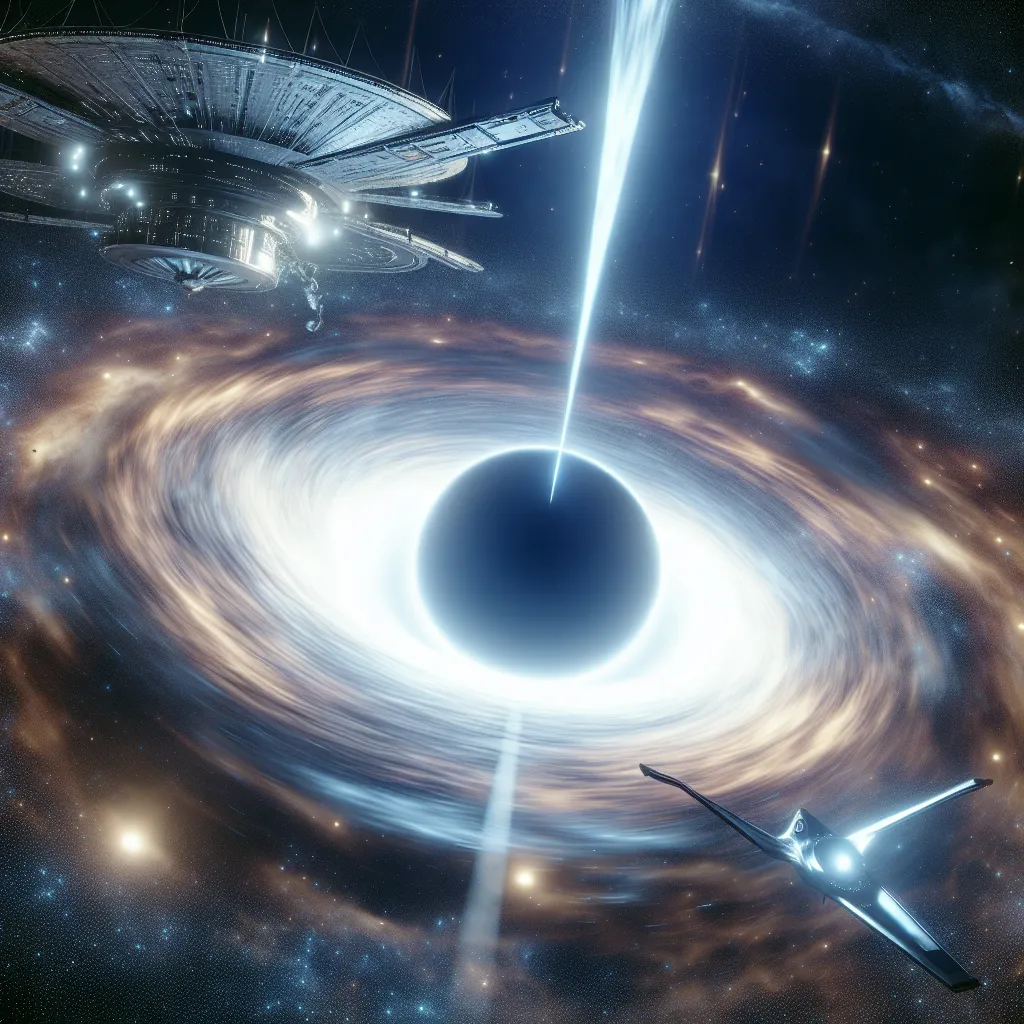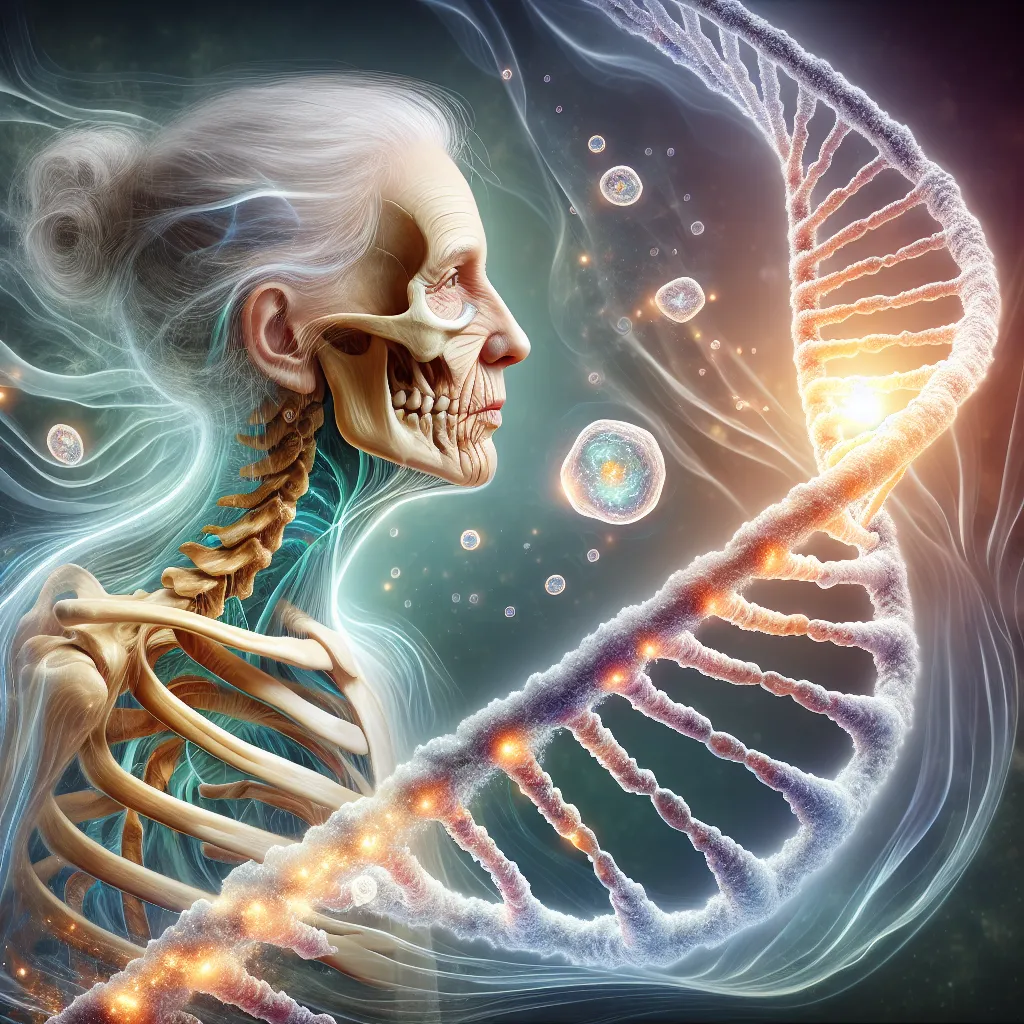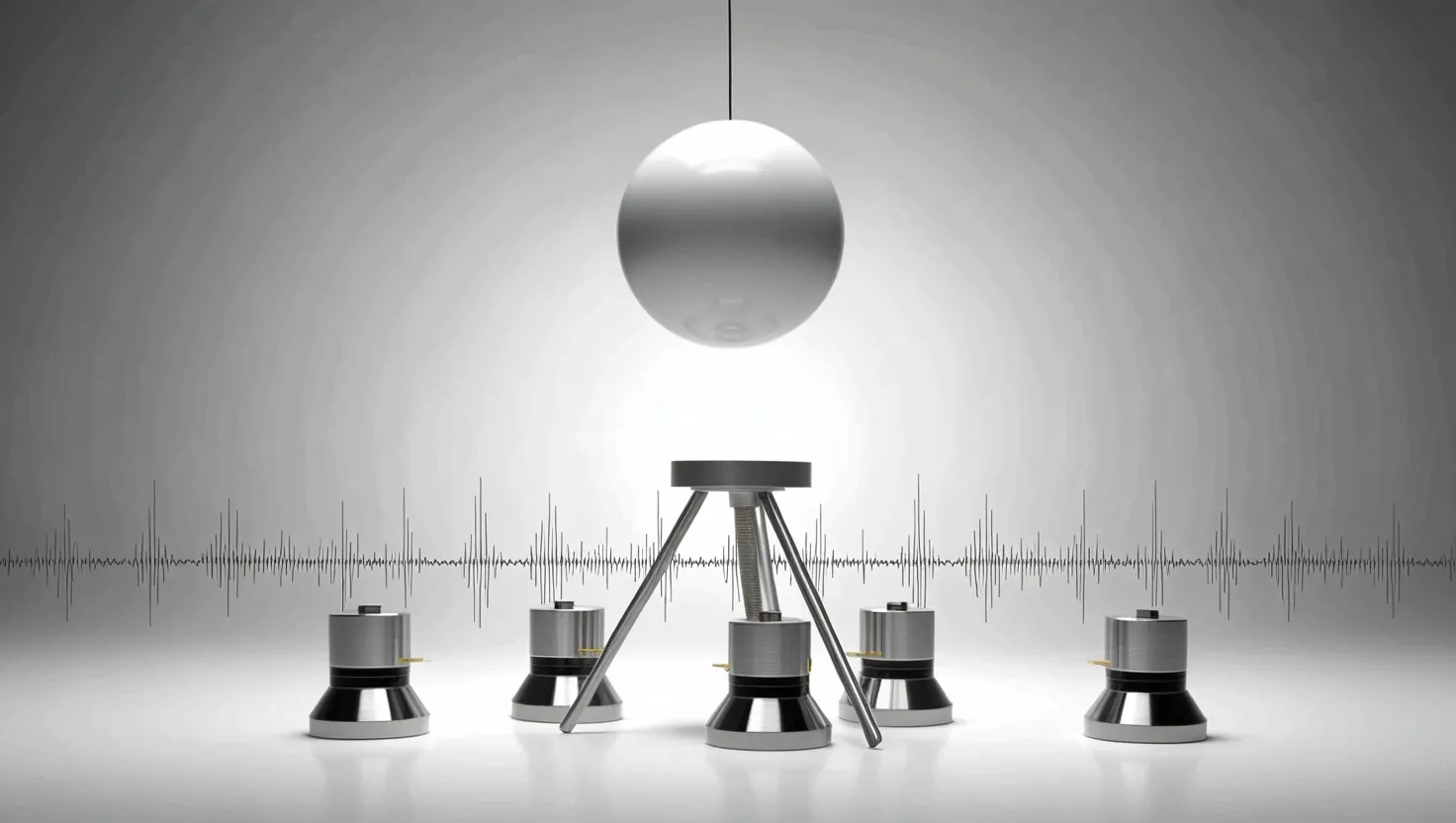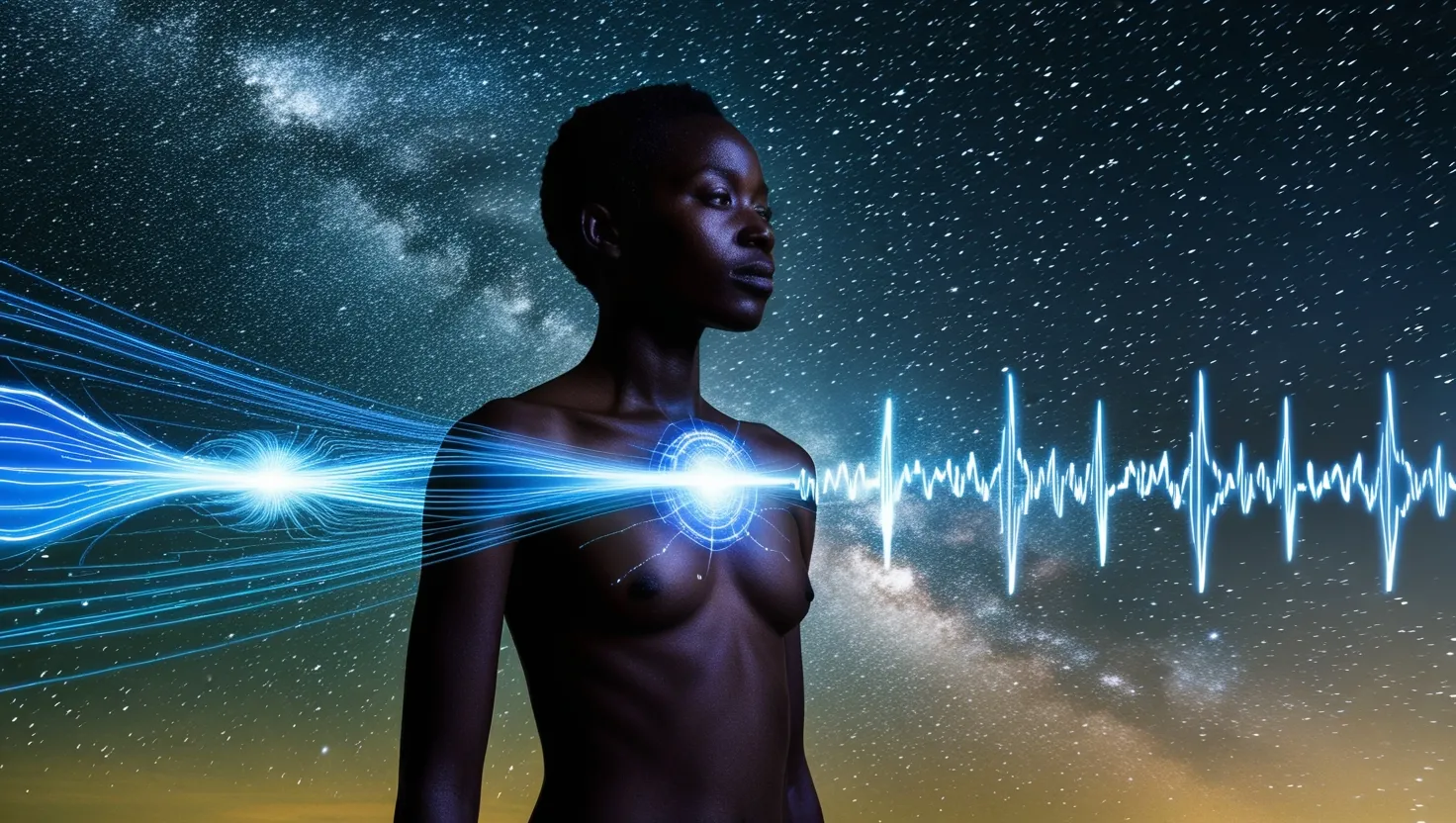Imagine a world where the cells in your body are not just biological entities, but also musicians in a grand, multidimensional orchestra. This intriguing idea suggests that the vibrations and frequencies of our cellular processes could be creating a complex quantum melody that resonates across different dimensions. It’s a concept that blurs the lines between biology, physics, and the mysteries of the human experience.
To delve into this theory, let’s start with the basics. Cellular automata, abstract computational models of dynamic systems, have been used in various fields, including music generation. Researchers like Eduardo Reck Miranda have explored how these automata, especially when run on quantum computers, can produce intricate musical patterns. For instance, Miranda used partitioned quantum cellular automata (PQCA) to generate music that resembles variations on a theme, a technique famously employed by composers like Johann Sebastian Bach[1][2].
Now, let’s take this a step further. What if the processes within our cells are akin to these cellular automata, generating patterns and frequencies that could be interpreted as music? This idea is rooted in the understanding that cells communicate through complex biochemical signals, which can be seen as a form of vibrational language. Every cellular process, from metabolism to DNA replication, involves specific frequencies and rhythms.
Consider the human heart, for example. It beats at a specific rhythm, around 70-80 times per minute for an average adult. This rhythm is not just a mechanical process but also generates electromagnetic fields that can be detected outside the body. Some researchers suggest that these fields could be part of a larger, interconnected web of energy that influences our health and well-being.
The concept of cellular music also touches on the realm of intuition and the placebo effect. Intuition often feels like a sudden, unexplained insight, and the placebo effect shows how our bodies can heal themselves based on our beliefs. What if these phenomena are linked to the cellular symphony? Perhaps our cells are picking up on subtle vibrations or frequencies that our conscious minds are not aware of, guiding us towards certain decisions or healing processes.
The idea that our bodies might be tuning into a multidimensional broadcast is both fascinating and unsettling. It suggests that we are not isolated entities but part of a vast, interconnected network that transcends our physical reality. This network could be seen as a cosmic concert, with every living being contributing its unique melody.
But how could we possibly tune into this bodily broadcast? One approach is through the study of quantum computing and its applications in music. By using quantum computers to generate music, researchers are exploring new ways to map abstract data into musical forms. This process involves converting complex patterns into sound, which could potentially be applied to understanding the vibrational language of our cells[1][2].
Imagine wearing a device that can detect and interpret the electromagnetic fields generated by your heart or brain activity, translating them into music. This could be a way to ‘listen’ to your body’s cellular symphony, gaining insights into your health and possibly even tapping into hidden abilities or knowledge.
Of course, this is highly speculative, and the scientific community is far from confirming such ideas. However, the intersection of quantum physics, biology, and music offers a rich terrain for exploration. It challenges us to think about the human body in a new light – not just as a biological machine, but as a dynamic, vibrational system that is part of a much larger cosmic harmony.
The notion that our bodies are secret quantum radios, picking up tunes from across the multiverse, is a mind-bending theory that invites us to question everything we thought we knew about life. Whether this is just our imagination playing tricks on us or a glimpse into a deeper reality, it’s an idea that sparks curiosity and encourages us to explore the hidden rhythms of life.
In this exploration, we find ourselves at the edge of science and mysticism, where the boundaries between reality and speculation blur. Yet, it’s in these uncharted territories that some of the most groundbreaking discoveries are made. So, the next time you hear the beat of your heart or the hum of your thoughts, remember that you might be part of a grand, multidimensional orchestra, playing a tune that resonates across the cosmos.
